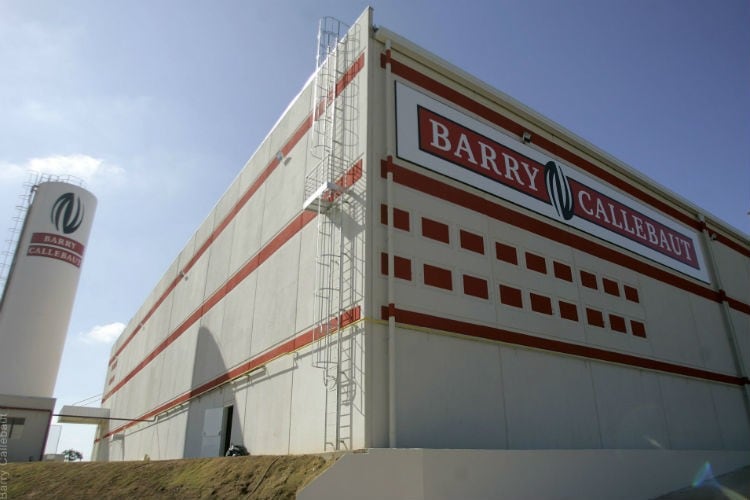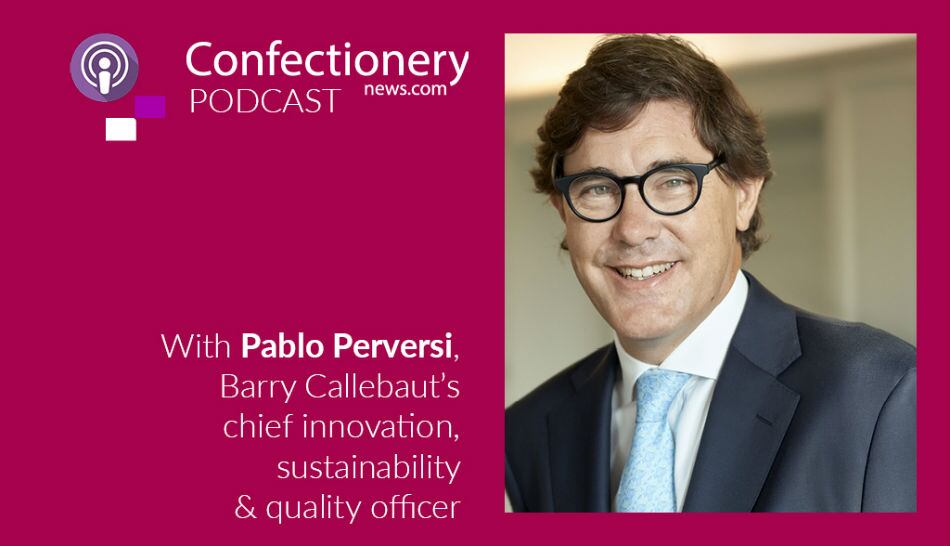As the ‘world’s leading manufacturer of high-quality chocolate and cocoa products’, Barry Callebaut has a lot to live up to, not least with its bold plan to ‘make sustainable chocolate the norm by 2025’.
This pledge was made in November 2016, a year after
Antoine de Saint-Affrique was appointed CEO - one of the main driving forces behind ‘Forever Chocolate’, BC’s self-certification program, which is set up to 'deliver 100% sustainable ingredients in all of our products in its supply chain'.
In cocoa, it means focussing on four key performance indicators (KPIs), which, under Forever Chocolate, are: Prospering Farmers; Zero Child Labor; Thriving Nature; and Sustainable Chocolate.
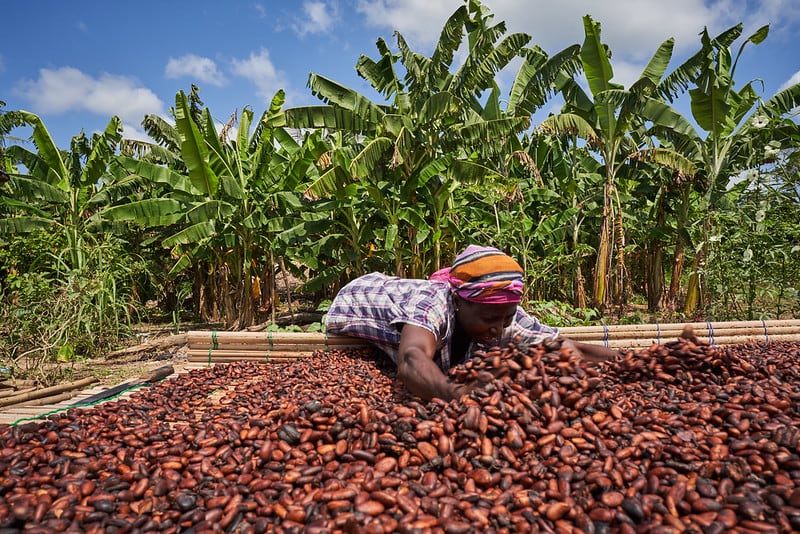
From the outset, BC has claimed that Forever Chocolate is a movement; no matter how big a player it is in the cocoa industry, it can’t work alone and needs the expertise from ‘academia and NGOs, the resources from our customers and partners, and an enabling policy environment from governments in order to succeed in making sustainable chocolate the norm’.
Data-driven approach
Its most recent (2018/19) Forever Chocolate Progress shows it is indeed making progress with the results of a data-driven approach, rolled out at scale, with the support and resources of all its relevant stakeholders.
While Forever Chocolate may have the support of BC’s executive board and shareholders, it is the support of cocoa farmers on the ground, at the heart of its supply chains, where success or failure will be determined. It is also where the climate around cocoa production remains unforgiving.
When you are a leader, you are able to trigger movement; in 2016, when we started Forever Chocolate, we knew that this was the right action, the right thing to do - BC CEO
Antoine de Saint-Affrique
To achieve a sense of the scale of the problem and look at the success of Forever Chocolate three years on, ConfectioneryNews was recently invited to observe Barry Callebaut’s operation in Ghana, which along with Côte d'Ivoire, is not only one of the biggest producers of cocoa, but one of the poorest origin countries.
“When you are a leader, you are able to trigger movement; in 2016, when we started Forever Chocolate, we knew that this was the right action, the right thing to do. We are trying to go as fast as possible to meet our targets,” de Saint-Affrique told ConfectioneryNews after an update on Forever Chocolate in Accra, the Ghanaian capital.
He reaffirmed that ‘sustainability is at the heart of our business’.
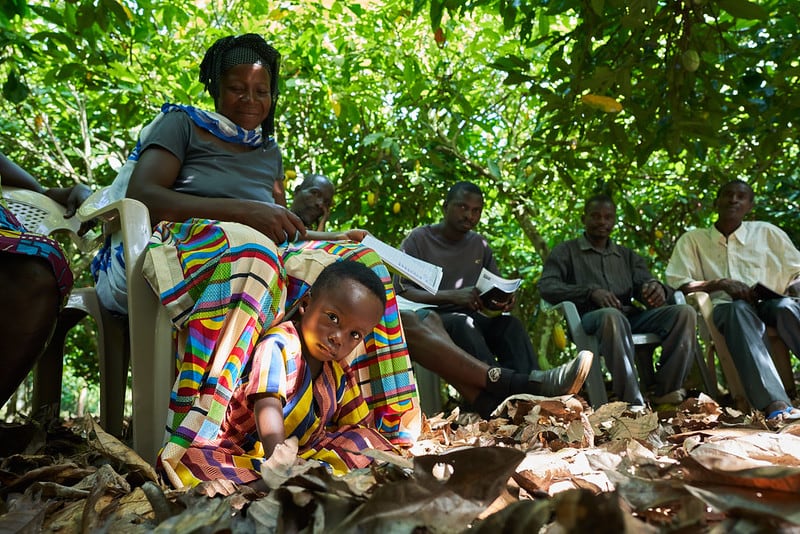
“This is why in 2016 we launched Forever Chocolate, our plan to make sustainable chocolate the norm by 2025. By committing to have more than 500,000 cocoa farmers in our supply chain lifted out of poverty, eradicating child labor from our supply chain, becoming carbon and forest positive and by having 100% sustainable ingredients in all of our products, we will bring systemic change to the cocoa and chocolate value chain.”
BC’s most recent progress report, covering fiscal year 2018/19 (ended August 31, 2019) and officially released on 4 December, shows it is creating impact on the ground and leading change in the cocoa and chocolate value chain.
In July 2019, Sustainalytics, a leading independent company that assesses companies’ sustainability efforts, ranked Forever Chocolate the #1 sustainability strategy in the packaged foods industry out of 178 companies.
'We need trees'
For de Saint-Affrique, the initiative behind Forever Chocolate is obvious: “If we want cocoa to be still around … we need trees,” he says. “We need rain on the trees, there needs to be famers to take care of the trees and we need to be sensible about our production methods or we won’t be able to serve our customers. A large part of what you are doing is to ensure that for future generations sustainability becomes absolutely obvious.”
He also says that it’s obvious there are issues that Barry Callebaut cannot solve by itself. “Not all companies will adopt sustainable practices in one go; it’s going to be a journey, but I am absolutely convinced that consumer demand, regarding climate change for example, will be a significant factor.”
In 2015 Barry Callebaut bought Nyonkopa, a Licensed Buying Company in Ghana authorized to buy cocoa directly from farmers
The power of data and technology
At the heart of BC’s Forever Chocolate program is the use of data and technology.
Farm mapping, combined with farmer census interviews, provides its experts with key insights into the geographical location, farm size, crops grown, as well as the household composition and income of thousands of cocoa farmers and their farms.
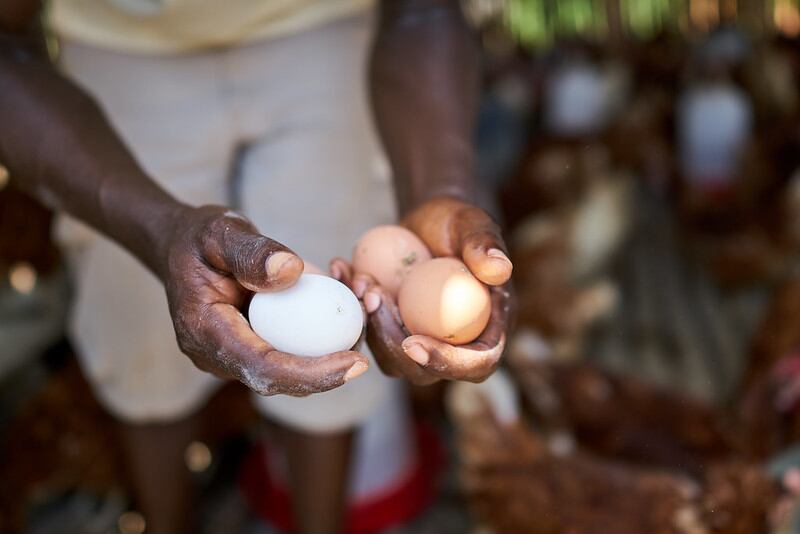
The data collated so far from 176,984 farms gives an insight into the current situation of cocoa farmers, allowing BC to offer more targeted advice on how to improve the productivity of cocoa farms via Farm Business Plans.
BC says these plans cover multiple years during which time it offers advice on the best mix of planting cocoa seedlings, the use of fertilizers and diversifying income-generating activities, while helping farmers to access inputs and training on credit.
“We are also mapping farms looking at places with a higher risk of child labor, it’s very hard work. Every stakeholder needs to play their part; we can build schools but if there are no teachers for the school for example – we can’t have an impact,” de Saint-Affrique says.
While the investment in Forever Chocolate by Barry Callebaut is woven into the structure of the company, there are no separate roles regarding its employees and it’s part-and-parcel of the job, meaning the chief sustainability officer is also chief of R&D and the innovation officer, while the person sourcing ingredients will also take on sustainability responsibilities. de Saint-Affrique says he believes “too much subsidy attracts all types, not professional, and it doesn’t tackle the main points of sustainability.”
Still, BC is giving millions of premiums to farmers, because one of the pillars of Forever Chocolate is lifting half a million farmers out of poverty. de Saint-Affrique says it makes sense to BC to support the recent Living Income Differential introduced jointly by Côte d'Ivoire and Ghana, “but we need to make sure that if we create a space, that space is being used to keep improving farming and making it more sustainable all the time.
“Once you improve the productivity of farmers, you can free up land to grow different crops or produce and also raise chickens to produce eggs, either way you create a different model and more income for the farmer.”
We can’t hit replay, moving forward it has to be done in a different way - Nicko Debenham, BC's head of sustainability
The man charged with delivering BC’s vision of making sustainable cocoa the norm is Nicko Debenham, the company’s head of sustainability.
Debenham has more than 30 years’ experience in the cocoa value chain and was appointed in May 2014, guiding Forever Chocolate since its inception in 2016.
“Our core approach is to create impact, getting away from old fashioned Corporate social Responsibility (CSR) … it’s about impact embedded in the business and how we can do that by fundamentally understanding the situation we find ourselves in, by acquiring huge amounts of data and then using that data to understand how we can make a change.
“‘What got us here, is not going to get us there’. We can’t hit replay; moving forward, it has to be done in a different way, and we have to do it at scale, this is about a whole business,” Debenham told ConfectioneryNews.
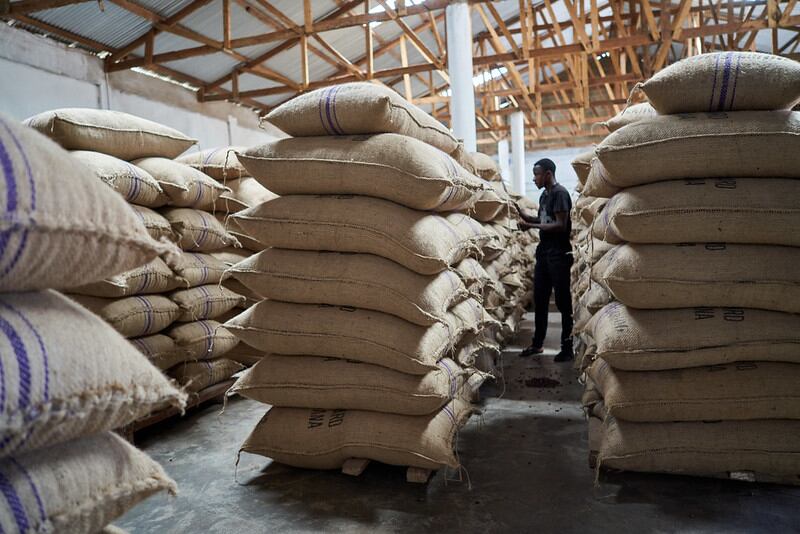
Debenham was implicit that, in his opinion, one of the criteria of success or failure of Forever Chocolate is getting farmers out of poverty.
“If you don’t, you are not going to solve the problems of child labor or the problems of deforestation, so our theory of change is to really support farmers in the environment they are in at the moment to become efficient and effective business men or women making a good living, which will then enable us to much more easily tackle the challenges around child labor and forest encroachment from the cocoa farms.”
Unique database
Debenham says BC has developed a unique database called Katchilè to help with traceability. “How we use that database is as an operating tool, not just a reporting tool. We have created apps that can collect data using mobile phones. Data is uploaded onto Katchilè and then used by other apps such as farm services application as part of Cocoa Horizons, a foundation in Switzerland, that supports customers in getting involved in projects and programs - BC also funds Cocoa Horizons and has 135,000 farmers in the program.”
Writing in the progress report, Debenham says BC has conducted census interviews with 229,142 cocoa farmers (+75%), capturing socio-economic and household data.
“For 176,984 farms, we conducted both geographical mapping as well as census interviews. This unprecedented collection of farmer data has allowed us to individualize our Farm Business Plans. These are designed to enable farmers to develop their cocoa farms into rehabilitated, diverse and professionally run farms over a period of several years. The Plans offer specific advice on the best mix of seedlings and fertilizers, and help farmers to access labor and inputs on credit.”
The data points used for farm business plans also identify risks of child labor. To combat it directly, Cocoa Horizons is running a community-based pilot scheme in Ghana, based on Child Protection Commitees (CPC) made up of senior representatives from villages.
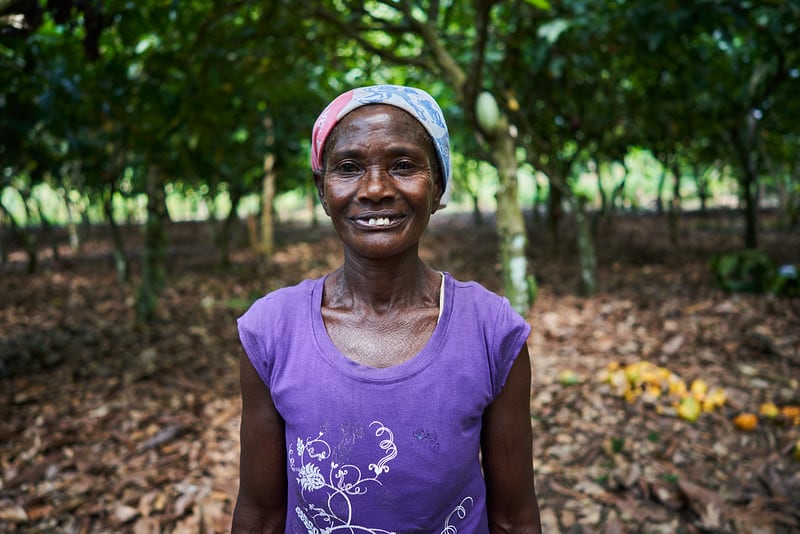
“With child protection committees, we are trying to move from remediation to prevention, eradicating child labor in the whole of our supply chain. We are using census mapping to create heatmaps whereby we can identify areas where there is more likely to be child labor. This will enable us to prioritize communities; at the moment we are seeing about 60% accuracy so we can identify areas rather than adopting a blanket approach. CPC is a community-based approach, enabling communities to take ownership of their own challenges,” he says.
On the environment and deforestation, Debenham says BC is looking at 3 scope emissions in its carbon footprint created by its own operations: (scope 1), the carbon footprint generated by the energy it uses; (scope 2) as well as the carbon footprint of its entire supply chain; (scope 3) which also includes the production and processing of all BC’s sourced raw materials and related land use changes (LUC).
Debenham says “BC will carry the burden of history for deforestation that happened in our supply chain within a specified historical period, which in cocoa is 20 years.
“So, to meet that commitment when we get to 2025, we will need to be sourcing from farms that only deforested before 2005, in other words, we can’t tolerate any more deforestation in our supply chain, not just for cocoa but all raw materials.”
Debenham says this type or reporting has never done before in cocoa, because measuring progress has been difficult until now. “We work with our research partner Quantis to create how you measure land usage in cocoa supply chain. But we know we are creating a better environment for farmers in terms of carbon footprint. We also work with carbon Gold Standard to create a verification of the amount of carbon and whether it has been mitigated or sequestered at farm level,” he says.
'Biochar'
The Forever Chocolate progress report also mentions the launch of a pilot to test the viability of Biochar. This consists of the residue of cocoa shells that have been used to generate energy in BC’s factories.
Debenham says that, while “it scares the hell out of people”, BC is piloting it in four factories and “if it works, we will end up with a carbon neutral network”.
In addition, the use of Biochar supports the offsetting of BC’s carbon footprint. “We are investigating the possibility of extending the use of Biochar as a fertilizer to our Farm Services business, to improve soil quality and make cocoa production more carbon neutral. Further, Biochar can be used by dairy suppliers for cow feed production, to reduce methane production,” he says.
Speaking of Forever Chocolate and its progress so far, Debenham says: “Our approach is to make a commitment which is measurable and time bound, report on it annually in an open, public and transparent way and have it independently verified by PWC.”
de saint-affrique says in the report: ‘Since Forever Chocolate is a movement, we welcome all feedback and offers for support’ from the industry.
- The author was a guest of Barry Callebaut, which paid transportation and accommodation expenses. However, at no point did anyone associated with the company request approval of this article because of that financial underwriting.


